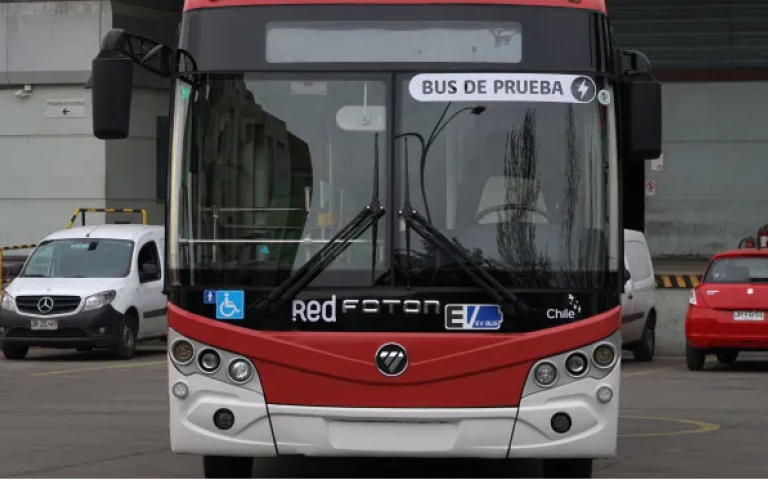A long process had to be followed for the General Comptroller of Chile to approve the tender that began in December 2020, to award more than 150 services for the Red Metropolitana de Movilidad system (formerly Transantiago). Finally, in February, the adjudication of the routes and zones was accepted, which will allow the arrival of 1,637 buses to the streets of the capital Santiago.
60% of the new buses that will be part of the landscape of the Chilean capital will be electric and from the Chinese brand Fotón, which with 991 units manages to take a very important share of the population of electric buses in Latin America, in which BYD has been dominating for several years.
TRANSDEV CONTINUES TO HAVE A PRESENCE IN CHILE
Units 4 and 6 will be in charge of Redbus Urbano, an operator belonging to the French mobility multinational Transdev, which owns 100% of the shares. It will combine its fleet with Euro 6 diesel buses, incorporating the Volvo B8R in standard and articulated low-floor versions, joining the Marcopolo bodies with its Torino urban model.
There will be 391 Euro 6 diesel buses (343 monobody buses and 48 articulated), which will be accompanied by the 233 Foton electric buses, of the U10 model that is equivalent to the small bus and the U12 that corresponds to the standard type. They will be integral (chassis and bodywork built at their plants in China). As has been done in tenders in other countries, such as Transmilenio in Bogotá, the companies that are in charge of supplying the fleet have been separated from those that operate, to facilitate financial closings and the assurance of resources to ask the factories the vehicles.
ARGENTINE INVESTMENT IN CHILE
Argentines also come to the operation of the Santiago BRT system, thanks to the Metropol Group subsidiary. This is a conglomerate that has distribution businesses for Toyota vehicles in Argentina, production and distribution of nuts, as well as public transportation. In this last area, it is responsible for more than 1,500 buses and mobilizes more than 230 million passengers a year.


Grupo Metropol, will serve Service Units 1 and 2, with the companies Buses Alfa and Buses Omega, respectively. Each of them will have 24 routes and the concessionaire will be able to operate them from the end of 2022, until the year 2029. There will be 293 Foton U12 electric buses with a maximum capacity of 90 passengers, 44 articulated buses and 89 Volvo B8RLE standards. All buses of the Swedish brand will be built in Brazil and bodied by Caio with its Mondego model.
THE CHILEAN CONTRIBUTION
The third consortium that will participate in the operation will be STP S.A. (Servicio de Transporte de Personas Santiago S.A.), which is made up entirely of Chilean capital. Its main shareholder is Empresa Nacional de Transprote de Pasajeros de Chile Ltda., with 47.83% of the company’s total shares and the rest, made up of groups of investors and real estate companies that have shares between 2.79% and 16.03%.
STP will deploy 547 buses, in Service Units 3 and 5, which have 52 routes assigned, combining an electric fleet with Euro 6 diesel. In this case, the difference will be with buses with an internal combustion engine, which will be Mercedes-Benz O500UA with flat low, whose chassis are built at the São Bernardo do Campo plant (State of São Paulo) to be bodied by Caio and its Mondego model.
Regarding electric buses, it will also trust Foton with 66 units that can transport up to 67 passengers and 399 that can travel with a maximum of 90 occupants. Both equipped with CATL batteries, Prestolite motors coupled to the rear wheels, air conditioning, pneumatic suspension, low floor and access ramp for people with reduced mobility.
When these buses are delivered, including the 991 electric ones, Santiago will regain first place in Latin America in the size of the zero-emission fleet rolling through its streets, as it will momentarily lose the leadership to Bogotá, which expects 830 BYD vehicles for the next few months zonal component of Transmilenio.

